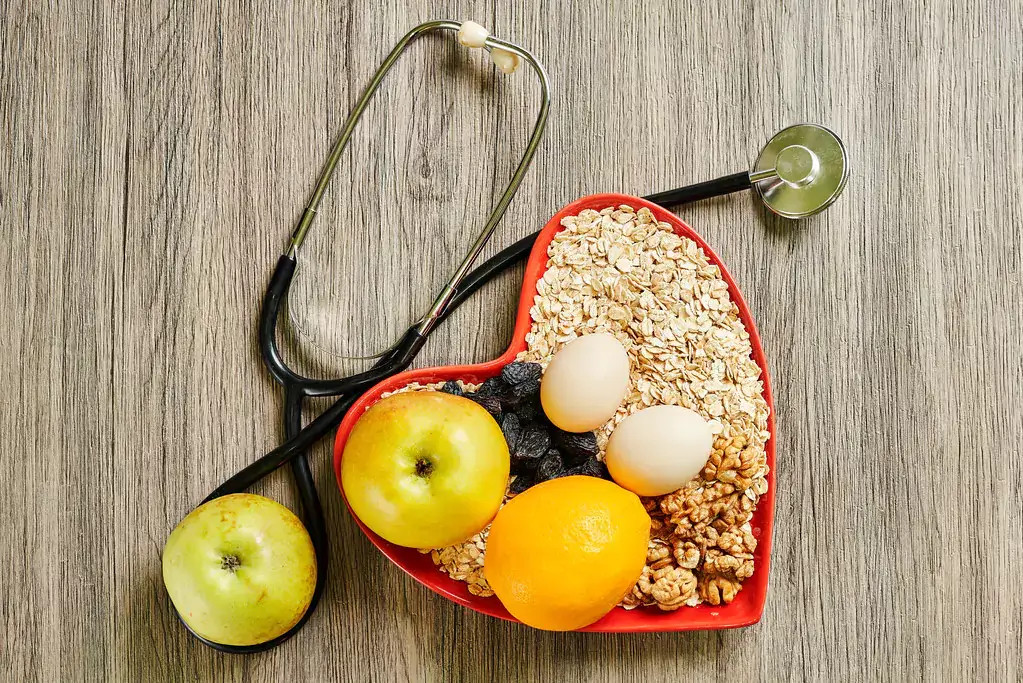Cardiovascular expert Doctor William Li has revealed the foods we should all be eating more of to protect our hearts and brains - and they're all available in supermarkets.
Diet is a key factor in our overall health and wellbeing. Consuming too much of certain foods can lead to various health issues, while increasing the intake of others can have beneficial effects.
A doctor has recently highlighted three specific types of food that we should be consuming more of to safeguard our hearts and brains. Cardiovascular expert Dr. William Li, speaking on the latest Zoe Health podcast, provided advice on maintaining healthy blood vessels, which in turn can reduce the risk of heart disease and dementia, among other serious health conditions.
He stated: "One of the things that we're able to do is to use food as medicine to help heal and maintain the health of our blood vessels, that's something that's well established. All these things are sensitive to our diet, we can keep our blood vessels healthy."
Li suggests the best foods for this purpose are:
Colorful Vegetables: The Power of Polyphenols
Li said "eating the rainbow" when it comes to vegetables can aid in smooth blood flow through the vessels. This is due to their content of a naturally-occurring compound known as polyphenols.
"Well eating plant-based foods, you know the polyphenols that come in our colorful vegetables - eat the rainbow - guess what that rainbow helps to heal the blood vessels and keep that lining nice and smooth so blood can flow," said Li.
His advice is supported by a 2022 Nutrients journal study, which found that a diet abundant in various polyphenol-rich foods is "likely to improve vascular health and reduce the risk of hypertension". Another piece of research from the Advances in Neurobiology journal in 2016 suggested that "increasing the consumption of polyphenol-rich food may alleviate the effects of dementia".
Omega-3 Fatty Acids: Keeping Blood Vessels Smooth
Li also highlighted that foods high in omega-3 fatty acids can enhance heart and brain health.
He explained: "We know that marine omega-3s, which you can actually get from oily fish and even not so oily fish and even shellfish, can actually help to preserve and maintain that slippery smooth normal lining of the blood vessels. Very important for our brain health, not just for heart health, right."
The American Heart Association (AHA) advises a diet rich in omega-3s from fish, or fish oil supplements, as a method to decrease cardiovascular events, like heart attack or stroke, in individuals with existing cardiovascular disease.
Dark Chocolate: A Delicious Way to Protect Your Heart
Li mentioned that the flavanols in certain dark chocolates could safeguard the heart and brain.
"There have been studies looking at flavonols coming from plant-based foods like cacao," he noted.
"Cacao is the plant source for the material that's used to make chocolate. Dark chocolate has more flavonols and ultra-high flavanol chocolate has been studied and it protects not only heart health but lowers the risk of dementia by improving brain health at the circulation level as well."
Existing research has linked both to improved blood vessel function, lower blood pressure, and a lower risk of heart disease in people with and without pre-existing health conditions. And one study, from 2017, linked the flavanols in dark chocolate to improved oxygen levels, nerve function, and blood flow in the brain.
However, it is important to not eat large amounts of chocolate due to the sugar and calorie content. Li also told the podcast that people should avoid "harmful ultra processed foods and preservatives and chemicals" which could harm the gut microbiome as this is linked to most aspects of our health.
Beyond the Basics: Other Foods for Heart Health
While these three key food categories are essential, there are other foods that contribute to a healthy heart and blood vessels. Here are a few examples:
- Green leafy vegetables: Green vegetables like kale and spinach are rich in minerals, vitamins, and antioxidants. They are a good source of vitamin K, which contributes to a healthy heart.
- Whole grains: Whole grains, such as whole wheat, brown rice, oats, or barley, decrease the risk of heart disease by 10-20%.
- Berries: Berries such as blueberries, blackberries, strawberries, and raspberries are loaded with nutrients. They are also rich in antioxidants like anthocyanins, which reduce oxidative stress and inflammation and contribute to a healthy heart.
- Avocados: Avocados are high in monounsaturated fats, which help to reduce cholesterol levels and lower the risk of heart diseases.
- Walnuts: Walnuts contain high fibre and micronutrients like magnesium, manganese, and copper. Diets supplemented with walnuts can reduce bad cholesterol and decrease the risk of heart disease.
A Holistic Approach to Heart Health
While incorporating these heart-healthy foods into your diet is a crucial step, it's essential to remember that overall lifestyle plays a significant role in maintaining cardiovascular health. This includes:
- Regular exercise: Regular physical activity, including both moderate and vigorous exercises, helps lower blood pressure, improve cholesterol levels, and strengthens the heart muscle.
- Managing stress: Chronic stress can negatively impact heart health. Incorporating stress-reducing techniques like yoga, meditation, or deep breathing exercises can be beneficial.
- Quitting smoking: Smoking significantly increases the risk of heart disease. Quitting smoking is one of the most important steps you can take to protect your heart.
- Maintaining a healthy weight: Obesity increases the risk of heart disease. Maintaining a healthy weight through balanced diet and exercise is crucial.
By adopting a heart-healthy lifestyle, including incorporating these essential foods into your diet, you can significantly reduce your risk of heart disease and improve your overall well-being.


















